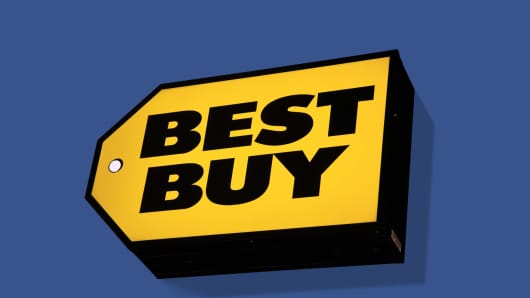China may be the world’s biggest- and fastest-growing consumer market, but a handful of overseas retailers have continued to struggle in the market.
Last week, U.S. electronics firm Best Buy shuttered all nine of its branded stores in China after five years in the market, saying it will now focus on the local chain 5-Star it acquired several years ago. The announcement came a month after American home-improvement store chain Home Depot closed down its last outlet in Beijing.
Critics have been quick to blame Chinese consumers for the failure of Western retailers. They say the Chinese are “too cheap” to buy expensive products, or to care about service, and prefer haggling for discounts over the set prices in these stores.
While the habits of the Chinese spender may have posed challenges, the explanations aren’t completely true. Local electronics retailer Gome adopted fixed prices and non-commissioned salespeople in some flagship stores last year. Sales soared as a result because wealthier consumers fear over-paying and don’t want to waste time negotiating.
It’s also been reported that Apple’s new store in Shanghai sells more iPhones per square foot than any other store in the world, despite the phone being priced 30 percent more than in the United States.
So what happened?
According to our research, Best Buy in China was perceived as being too expensive, with many of their products priced higher than in local markets. Why buy a Sony DVD player or Nokia phone at Best Buy when you can pay less for the exact same product at a local store? Consumers will only be willing to pay more, like at the Apple stores, if they are buying something they cannot get elsewhere.
While scales of economy have allowed big chain stores in America to offer cheaper prices than niche players, local retailers in China are able to undercut prices because they pay less in salaries, benefits, rent and electricity. Rampant piracy in China also means local computers shops are willing to install counterfeit Microsoft software in products, which makes it more appealing for customers.
Apart from failing to differentiate its product lines, Best Buy also made the mistake of focusing on building large flagship stores, like in the U.S., rather than smaller, conveniently located retail outlets. China may have one of the highest car adoption rates in the world, but its perennial traffic congestions and lack of parking mean consumers often prefer to shop closer to their homes. A government ban on free shopping bags have also resulted in consumers shopping more often, but buying less each time, further fueling the popularity of neighborhood stores.
To stay competitive, Western retailers like Wal-mart and Carrefour , which continue to lean on the model of big box retailers in China, need to overhaul their business strategies and better understand the evolving Chinese consumer preferences. Local players like Jiadeli and Lianhua, for example, have been quick to adjust their focus on neighborhood stores and stock better products.
Going forward, foreign retailers need to localize their product selection, sales formats and be smarter in their location choice in order to compete with emerging brand savvy, local players.
Shaun Rein is the founder and managing director of the China Market Research Group (www.cmrconsulting.com.cn) a strategic market intelligence firm, and is based in Shanghai. Follow him on Twitter at @shaunrein. He does not own stock in any of the companies mentioned.


